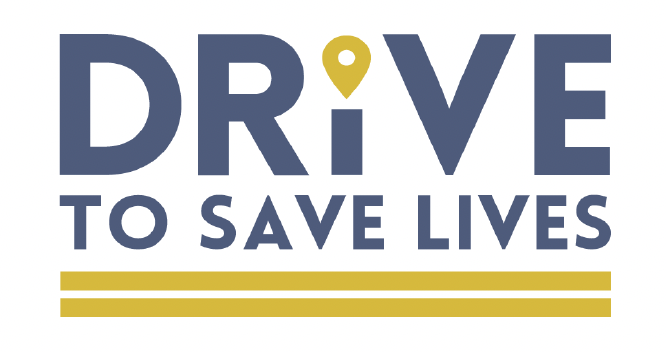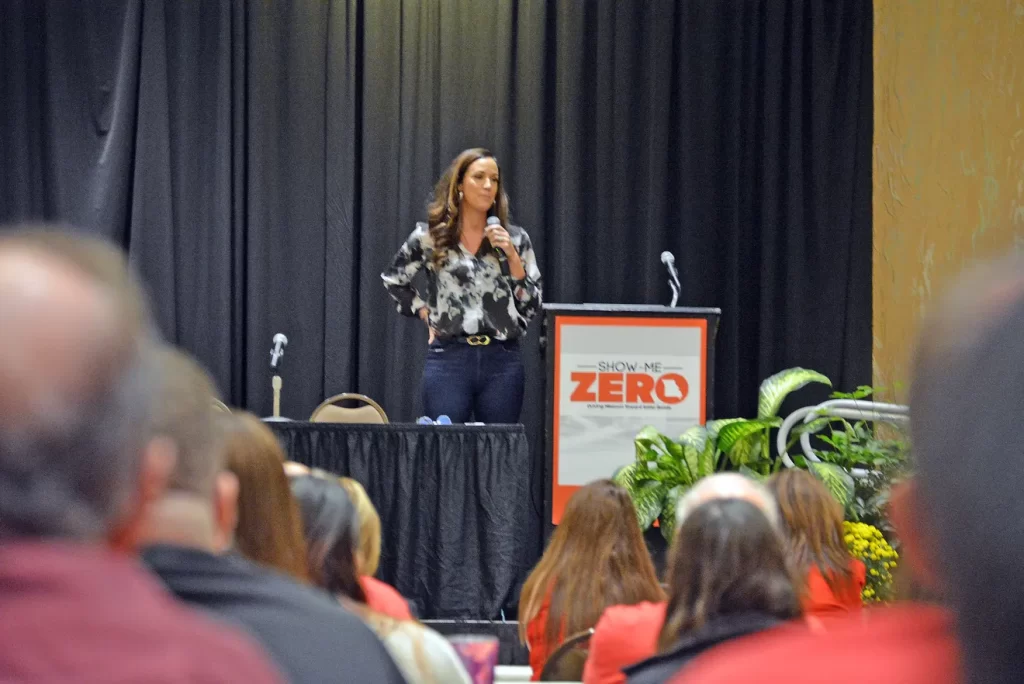Nearly 30 years ago in Vancouver, British Columbia, Cara Filler witnessed the car crash that took the life of her twin sister, Mairin Johnston, a day after their 18th birthday.
Johnston’s boyfriend was speeding in a sports car, going roughly 100 mph in a 30 mph zone. His brakes locked, and he lost control of the car, leading the passenger side of the vehicle, with Johnston, to be hit by a much larger and heavier vehicle. The sports car buckled at a 90-degree angle at the point of impact.
The boyfriend walked away from the crash with a broken arm and a lost tooth. He would receive a $150 fine for speeding and 18 months later be sentenced to a year in jail for the crash. He spent 15 days in jail.
The choice the boyfriend made has impacted Filler and her family ever since. While a person cannot change the past, they can choose what happens next in the fight to lessen preventable crashes, Filler said as she delivered the keynote Thursday at the 2022 Highway Safety and Traffic Conference held at the Holiday Inn Executive Center in Columbia.She is a speaker with The Drive to Save Lives, usually delivering her address to high school students.
“I am sick and tired of car crashes being the No. 1 killer of youth, those under 25, whether they are driving or not,” Filler said.
The conference held Tuesday through Thursday this week welcomed a variety of speakers and professionals in law enforcement, traffic and roadway engineering and those impacted by the decisions of others who either drove recklessly, distracted or impaired. It was hosted by the Missouri Coalition for Roadway Safety Show-Me Zero program, aimed at bringing crash-related fatalities and serious injuries to zero in the state.
Being a speaker on safe driving choices never was what Filler planned to do with her life, she said.
“I was going to go off to college and become a marine biologist,” she said. “I am not now, nor will I ever be a marine biologist because I would rather spend my time at schools all over this country and at conferences in partnership with the amazing people in this room.”
Filler and other speakers Thursday said they want to change the narrative around car crashes, stating they most often are reported as accidents. They often are not accidents, the speakers said. A choice was made to speed, to not wear a seat belt, to drink or use drugs or to use a phone while driving.
“If you look at the definition of accident, it is something unpreventable, like stubbing a toe on a coffee table,” Filler said. “We still use the word accident because it helps us accept the fact (car crashes) happen every day. … We (in this room) don’t accept the fact this happens every day.”
Filler offered advice not only on what teens can do to make different choices, but practices parents and other adults can adopt for accountability.
When Filler was growing up, this included a “No Grounding Day.” Filler and her sisters could discuss anything with their parents about poor choices they made over the last year with no consequences. They also had a safety phrase, “Blue Fish.” If Filler was in a situation where she did not feel comfortable, she could call her parents and say “Blue Fish,” and her parents would come pick her up, no questions asked.
This practice gives teens the autonomy to make good choices and not be fearful about keeping the bad ones secret, she said.
“What I do at every school I have ever been at since my sister died is offer those teens a buffet of choices,” Filler said, who said these teens are facing the double dose of peer pressure and hormones. “It makes them do some weird things in high school. Mairin’s choice to sit there and not say anything is what cost her life.”
Two things that prevent car crashes every day are driver common sense and the width of the center yellow line, she added, referencing another safe driving advocate she knows.
Common sense is thrown out the window when a person chooses to drive recklessly, impaired or distracted, and all that is left is the yellow line, she said.
“Life is not about the fights you can win. It is more important to find a fight we are fighting for,” Filler said. “I found mine. (Teen lives) are the fight we are fighting for.
“… I am so grateful to be in a room where we are all in the same fight.”
Charles Dunlap covers local government, community stories and other general subjects for the Tribune. You can reach him at [email protected] or @CD_CDT on Twitter. Please consider subscribing to support vital local journalism.

